Search Articles
Browse Content (p. 55)

Article
50 Biblical Phrases, Idioms, & Metaphors
In the Western tradition, many phrases and terms from the Bible are utilized as allegory, metaphors, idioms, or simply to describe the characteristics of a known person or event. They have become an essential element of literature and descriptions...
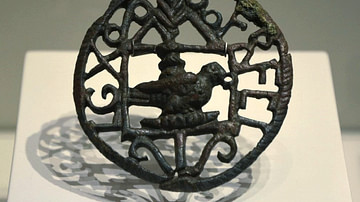
Article
Legions of Judea
Judea was initially dependent on its neighbor Syria for military support until it received a Roman legion of its own in 70 CE after the Great Jewish Revolt of 66 CE. Legio X Fretensis was stationed at remains of the burned city of Jerusalem...

Article
Müntzer's Vindication and Refutation
The Vindication and Refutation of Thomas Müntzer (l. c. 1489-1525) is a 1524 open letter to Jesus Christ, Martin Luther (l. 1483-1546), and the Christian community charging Luther with hypocrisy, betraying his original vision to win support...
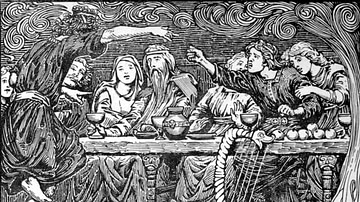
Article
Lokasenna
The poem Lokasenna belongs to the Poetic Edda, a bulk of Old Norse poetry written down in Iceland in the 1200s but based on linguistic features dating back as far as the 900s. In this invaluable resource for Norse mythology, Lokasenna stands...
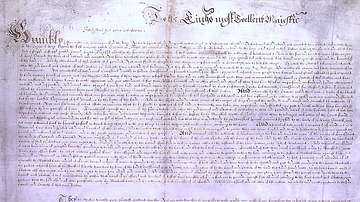
Article
Petition of Right
The Petition of Right was a list of demands of King Charles I of England (r. 1625-1649) issued by Parliament in June 1628. The petition came after three years of disagreements between the king and Parliament over finances, religious matters...
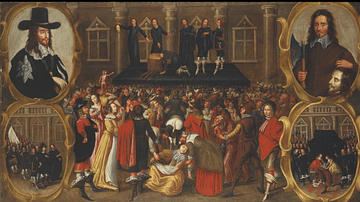
Article
Consequences of the English Civil Wars
The impact and consequences of the English Civil Wars (1642-1651) were many and far-reaching. Charles I of England (r. 1625-1649) was executed, and the monarchy was abolished. Oliver Cromwell (1599-1658) then headed the Republic as the Lord...

Article
Dynamics of the Neolithic Revolution
The Neolithic Revolution began between 10,000 and 12,000 years ago at several widely dispersed locations across the world, when our ancestors first began planting and raising crops. Agricultural communities sprang up almost simultaneously...
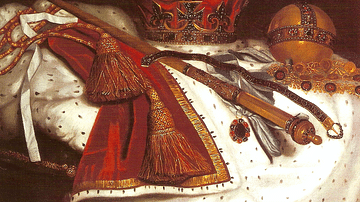
Article
Causes of the English Civil Wars
The English Civil Wars (1642-1651) were caused by a monumental clash of ideas between King Charles I of England (r. 1625-1649) and his parliament. Arguments over the powers of the monarchy, finances, questions of religious practices and toleration...
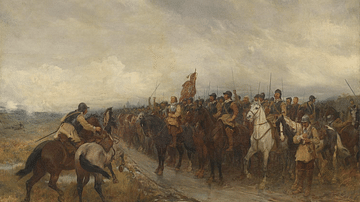
Article
Battle of Dunbar in 1650
The battle of Dunbar on 3 September 1650 between the English Parliament's New Model Army led by Oliver Cromwell (1599-1658) and Scotland's army led by David Leslie (c. 1600-1682) was one of the last major battles of the English Civil Wars...
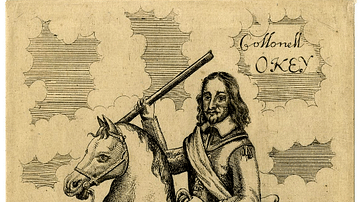
Article
Dragoons in the English Civil Wars
Dragoons were hybrid cavalry-infantry troops during the English Civil Wars (1642-1651). They usually dismounted before fighting and were used primarily as support troops. Dragoons were frequently tasked with capturing and holding strategically...